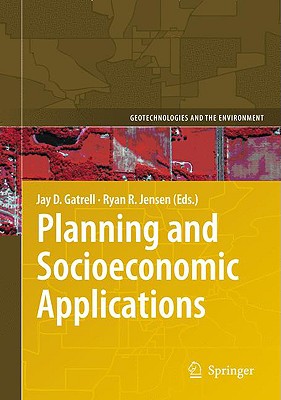| FindBook |
有 1 項符合
Planning and Socioeconomic Applications的圖書 |
 |
Planning and Socioeconomic Applications 作者:Gatrell,Jay D.(EDT)/Jensen,Ryan R.(EDT) 出版社:Springer Verlag 出版日期:2009-02-20 語言:英文 規格:精裝 / 223頁 / 2.5*16.5*24.1 cm / 普級 / 單色印刷 |
| 圖書館借閱 |
| 國家圖書館 | 全國圖書書目資訊網 | 國立公共資訊圖書館 | 電子書服務平台 | MetaCat 跨館整合查詢 |
| 臺北市立圖書館 | 新北市立圖書館 | 基隆市公共圖書館 | 桃園市立圖書館 | 新竹縣公共圖書館 |
| 苗栗縣立圖書館 | 臺中市立圖書館 | 彰化縣公共圖書館 | 南投縣文化局 | 雲林縣公共圖書館 |
| 嘉義縣圖書館 | 臺南市立圖書館 | 高雄市立圖書館 | 屏東縣公共圖書館 | 宜蘭縣公共圖書館 |
| 花蓮縣文化局 | 臺東縣文化處 |
|
|
圖書介紹 - 資料來源:博客來 評分:
圖書名稱:Planning and Socioeconomic Applications
內容簡介
The book focuses on socio-demographics and the use of these data to support strategic planning initiatives associated with the spatial expansion of urban areas and economic development. It contains a conceptual discussion of the challenges, both methodological and practical, implementing GIS applications for assessing economic and planning activities in peripheral regions including developing countries. The book examines how spatial clustering concepts, spatial models, and related visualization techniques (GIS) can be applied to the case of economic development in rural environments. It discusses methodological issues including data and analysis issues. It also examines the differential growth patterns of counties within city-systems of the Western United States from the date of county formation until the late 20th century, using an historical GIS and historical US Census data. The final chapter summarizes the collection and positions it within the context of the broader book series on geotechnologies. The book is written by planning practitioners as well as university based researchers. It will provide scholars and professionals with a survey of the contemporary work in the field, and with insights into remaining questions, methodological debates, and technical complications of employing geotechnologies in the real world.
|










